How can you establish cultural change? How do you implement and embed Open Science and Responsible Research and Innovation (RRI) in your organisation? These are the questions that the ORION project aims to answer. From the start of the project in 2017, ORION has been exploring how to establish an open dialogue with society on relevant research topics, such as genome editing, and has been developing new ways and collaborations between researchers and the general public. The project is now entering its last year and will collect and showcase the good practises and lessons learned generated by all of the partners.
More than 40 people including ORION project partners, representatives of the ORION advisory board and associated partners met online for the 3rd annual project meeting on 28-30 April 2020. The main focus of the meeting was to share progress of the ORION project activities, to brainstorm how to showcase the myriad of activities that have been conducted, and to discuss sustainability beyond the end of the project.
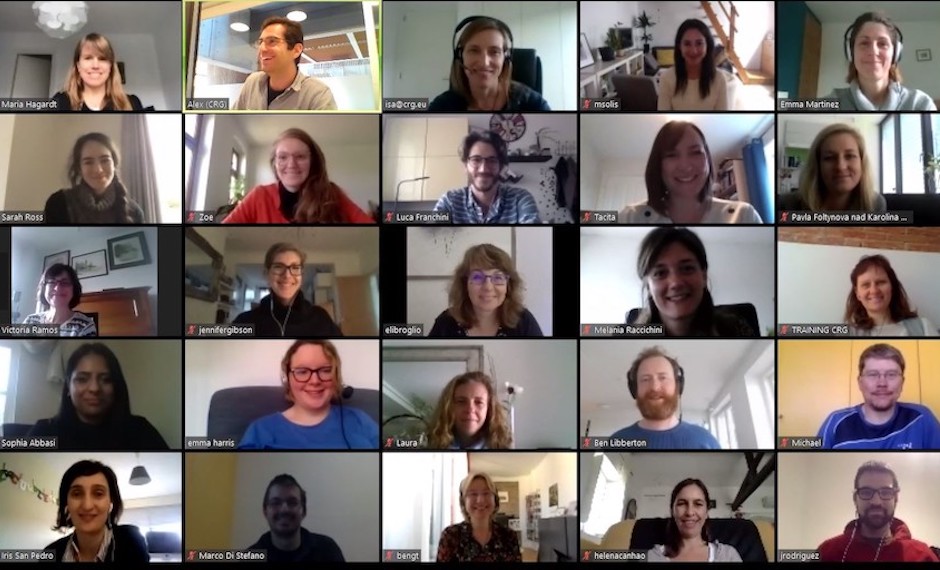
From public dialogues to citizen science and gamification
How do we actively involve the public in science and emerging technologies? During the first year of ORION, the project investigated the public's attitudes towards life sciences and genome editing. The 6.000 respondents from the six countries that participated in the survey were also asked in what way they would like to be involved in scientific research. The reasons that would encourage most people to get involved in life sciences research are an interest in the research topic itself, and a belief that the research would help society. Some of the most attractive ways on how to be involved were to collaborate in data collection and to give opinions on research questions and topics. But what do citizens know about genome editing? Fifty percent of the respondents had previously heard of genome editing and the three most accepted purposes of genome editing in all countries are related to human health: prevention or cure of diseases, prevention of disabilities and organ transplantation.
Building on these findings, the project has developed and tested a set of different methodologies and activities on how to bridge the gap and increase collaboration between researchers working in the life sciences and the general public. One of these activities is the series of public dialogues on genome editing that took place in the Czech Republic, Germany, Sweden and the UK during autumn and winter 2019-2020. The objective with the public dialogues was to explore what challenges and opportunities the public has concerning genome editing, their hopes and fears regarding the use of genome editing techniques and how the ORION partners should communicate about and engage society with this emerging technology.
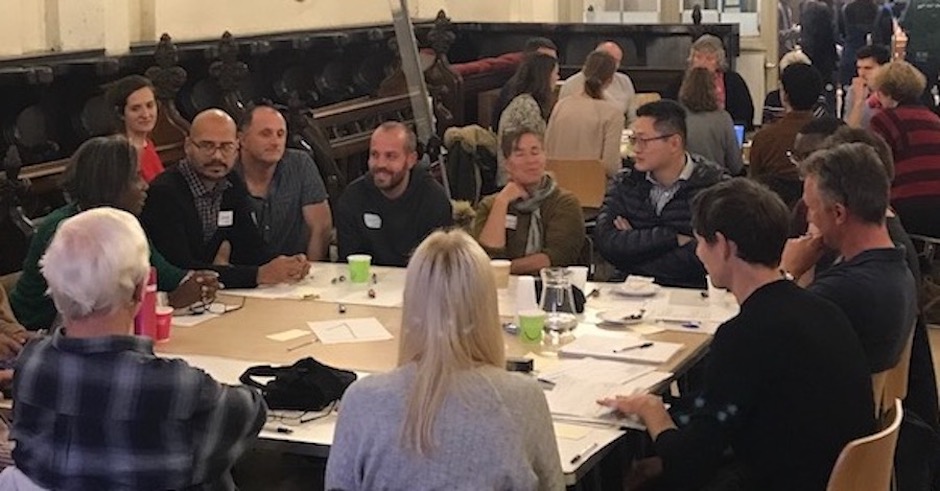
120 people from the four partnering countries participated in four national public dialogues and discussed with experts in their country their views on the use of genome editing.The public dialogues were managed by the ORION partner Babraham Institute, together with CEITEC, MDC and VA. During the dialogues the participants were also shown an art exhibition - AEON Trajectories of Longevity and CRISPR by the artist Emilia Tikka. The artwork, commissioned for this dialogue, stages a potential future scenario based on emerging technologies for genome editing and is a result of an artist residency at the Max Delbrück Center for Molecular Medicine in the Helmholtz Association, MDC. Communicating cutting-edge research using art is relatively new and uncommon, but it helps to increase the breadth of communication. Some initial findings from the dialogues shared at the ORION Annual Meeting by David Hills from Ipsos Mori are that participants were positive about research using genome editing techniques being carried out by scientists at ORION partaking organisations. However there were concerns about fairness and inequality in access to its potential applications. When it came to future uses, acceptability was linked to the direct benefits to human health. The country reports and a synthesis one comparing results across countries will be published before the summer. Additionally, the ORION partner CRECIM will publish a report evaluating the public dialogues. The findings of the public dialogues and the evaluation from CRECIM will be used to further develop a methodology for public involvement in science and how to communicate about emerging technologies as genome editing and CRISPR.
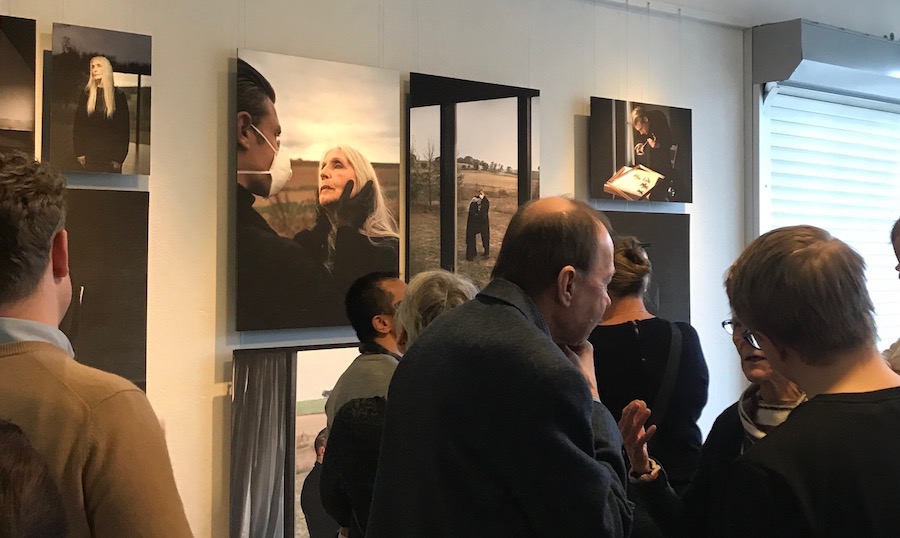
Exploring Citizen Science
During the third year, two citizen science projects were initiated within ORION. Juan Rodriguez and Elisabetta Broglio of CNAC-CRG in Barcelona presented the Genigma game which has been co-created as a joint effort between scientists, gamers, game developers and citizens. The game will help the researchers to explore genomic alterations in cancer cells. Genigma will be launched at the beginning of autumn 2020 and will be available in Spanish, Catalan, Italian and English.
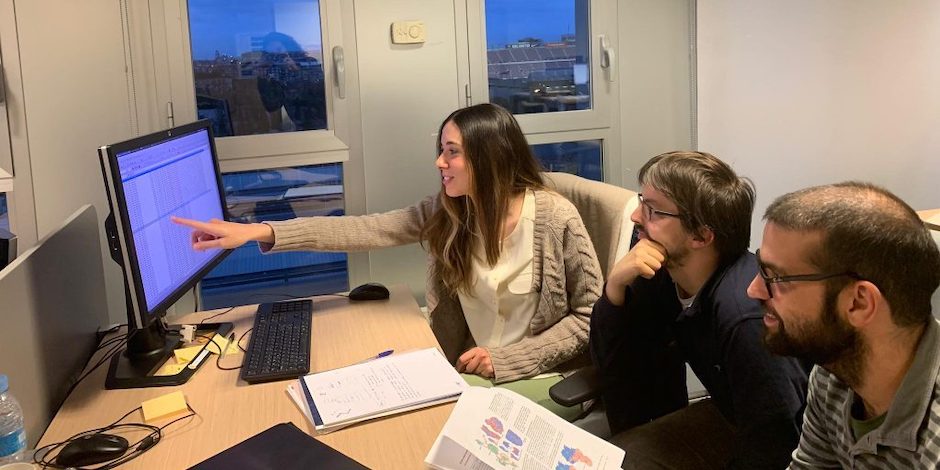
SMOVE - “Science that makes me move” is a citizen science project that aims to study physical activity and sedentary behaviour of 300 German high school students. The students teamed up with a scientist to develop a questionnaire to assess potential factors influencing physical activity and sedentary behaviour. Katharina Nimptsch is the project manager of SMOVE at MDC in Berlin. She shared with us that 10 schools encompassing 21 school classes have agreed to participate in the data collection as well as the analysis and interpretation of the data. The field tests started in February 2020 but had to be interrupted due to COVID-19 and schools closure. The project design is now being considered regarding how best to incorporate the impact of COVID-19 on this subject area.
Co-creation is at heart of the ORION project
Co-creation is an open process that allows active participation from different stakeholders to create new ideas or new knowledge. In ORION, we have tested different co-creation experiments that engage multiple stakeholders to explore different ways to make scientific research more participatory. In the Czech Republic, the ORION partner South Moravian Centre for International Mobility, JCMM launched a regional call for Open Science projects on local societal challenges. The call was open for master and doctoral students from local universities in Brno, and 45 project proposals were received covering areas such as medicine and animal diseases, reduction of heavy metals, reduction of pollution, water cleanness and addressing socio-economic issues. Micheal Dolezal, project manager at JCMM, explained that for many of the grantees this was their first “real” scientific project and they learned important lessons in project management, collaboration and interaction with public, colleagues, research teams and third parties. The competition gained some national attention and one of the winners was interviewed in the Czech television national news. The television team interviewed the grant holder Ms. Klara Vaculikova, from the Technical University of Brno, Faculty of Civil Engineering, manager of the winning ORION project "Pollution entering the Moravian Karst via surface streams".
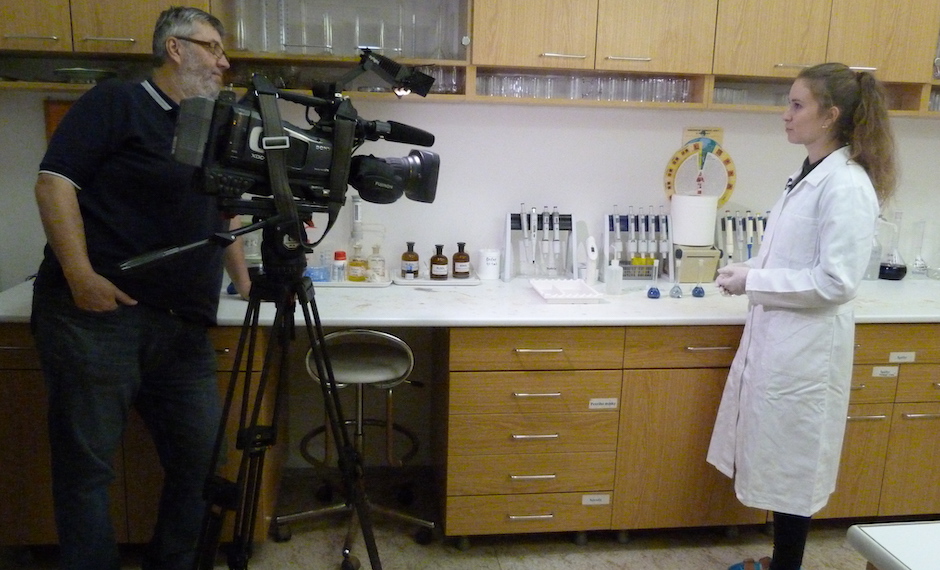
Another example of the ORION co-creation activities was presented by Victoria Ramos, the project coordinator of MELTIC, “Ideas MELting pot for TIC and Health Science for Citizens in Small communities”, at Instituto de Salud Carlos III, ISCIII. The MELTIC project brings together two disciplines, health research and information and communication technologies (ICT), and seeks to improve the quality of life of European citizens in small communities through co-creation activities with stakeholders including government entities, funders, educators, charities, civil societies, patient groups and citizens.
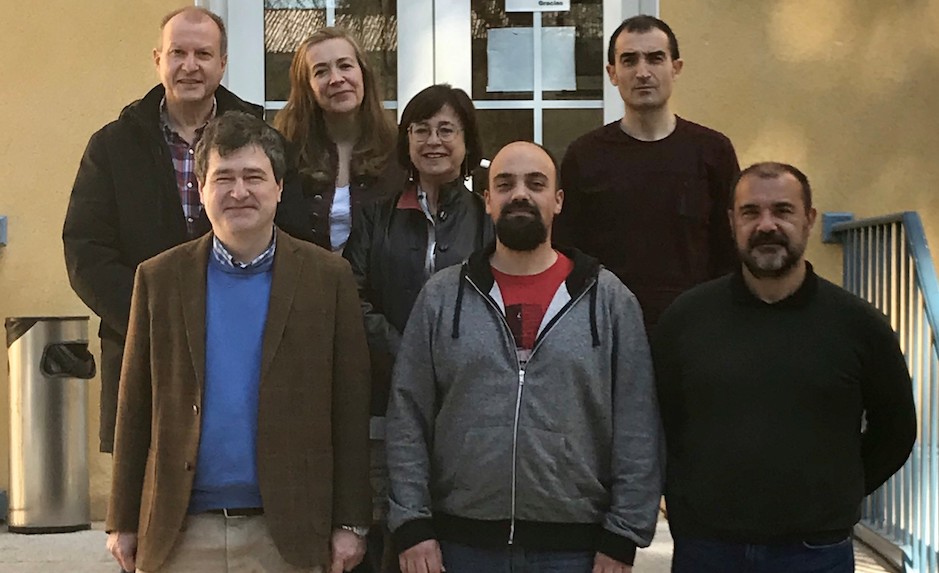
ISCIII illustrated the co-creation activities that led to the launch of a call to award RRI Health Awards to the health-accredited research institutes in Spain. The aim of the call is to recognise, support, promote and disseminate best practises of RRI by Spanish health research institutes. 26 proposals from 18 different research institutes across Spain were received, including projects on Open Science, gender equality, social collaboration, new healthcare models, scientific dissemination to patient and family participation, among many others. There will be three winners of the award, which will be announced in June and will receive 10.000 Euros each. The RRI Health award call has contributed to promote RRI awareness in Spanish research institutes.
Training to implement cultural change
To enable cultural change, organisations also need to empower their staff and researchers with new skills and knowledge. The ORION training team at MDC has developed new educational materials on Open Science and run a series of face-to-face workshops across Europe, training scientists in Open Science. All training materials are now available to use and download from the open source platform Zenodo. Until now more than 300 people have completed the ORION MOOC (Massive Open Online Course) on Open Science within the Life Sciences. This course, which includes modules of the different Open Science aspects, is now available for anyone to attend via the Open Learn Create platform. The ORION Open Science podcast series is in its second season and has gained considerable a lot of recognition and listeners in Europe and North America. The podcast is intended to be an easy and entertaining way to learn more about Open Science and research.
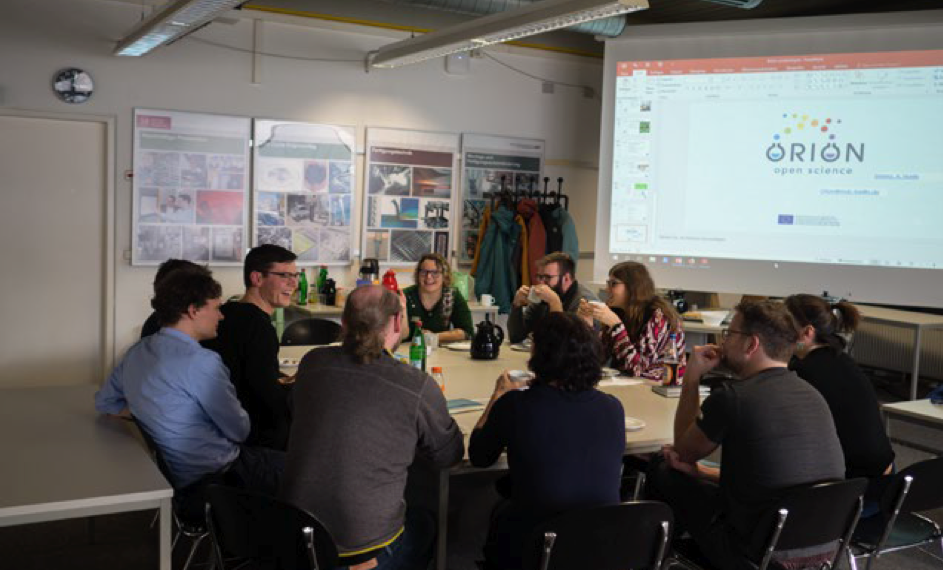
Ways forward to implement Open Science
With one year to go before the project comes to an end, we will continue to collect the results from the multiple co-creation and participatory activities, to elaborate learnt lessons, methods and processes to stimulate mutual learning and cultural change within research performing and research funding organisations.
"At the same time as we are showcasing the good practises and lessons learned, we are looking into ways of making the ORION project sustainable and how to include the experience gained in the strategies of the participating partner organisations, and hopefully even beyond our consortium." says Michela Bertero, Co-ordinator of the ORION project at Centre for Genomic Regulation.
More information
Do you want to stay informed about the ORION project? Follow us on our social media accounts; Twitter: @ORION_opensci Facebook: @ORIONOpenScience and LinkedIn: @ORIONOpenScience and subscribe to our quarterly newsletter.
For more information please get in touch with: Michela Bertero, CRG, Project Coordinator or Maria Hagardt, VA, Communication officer